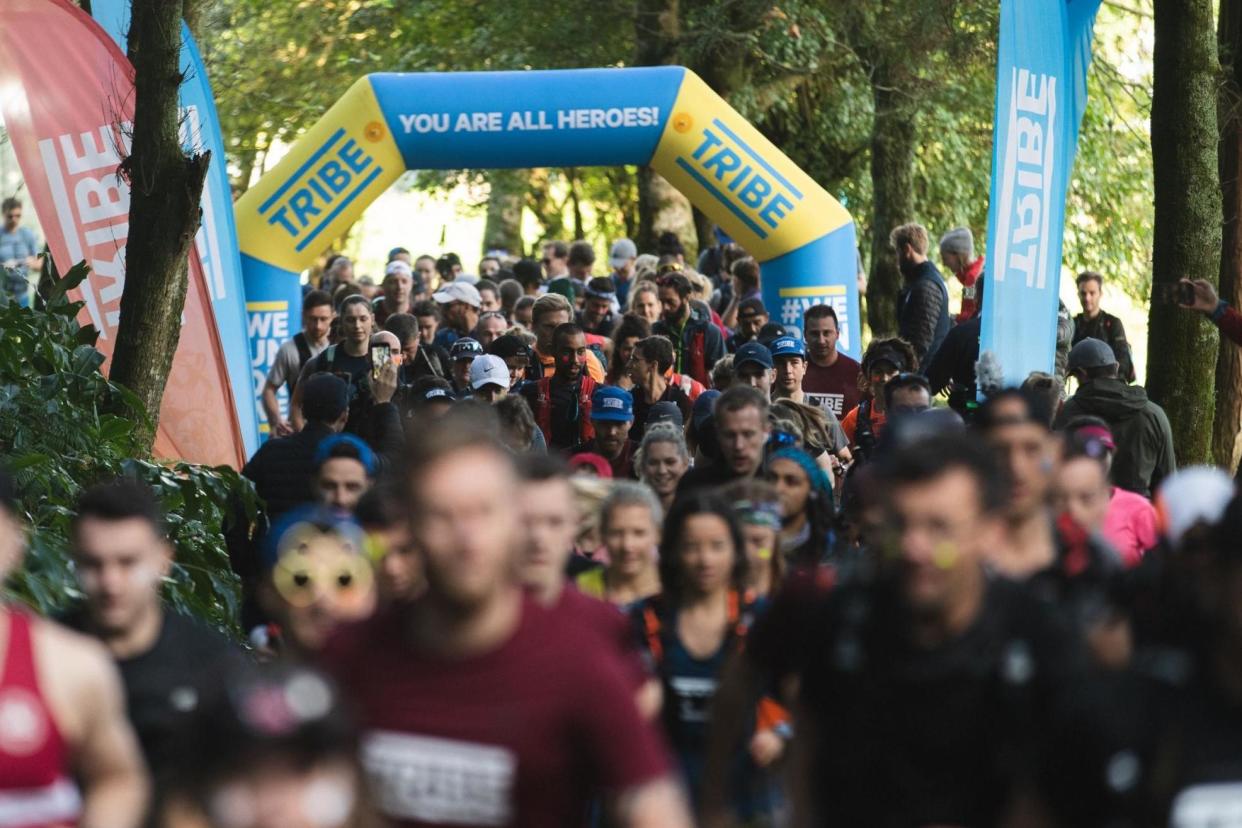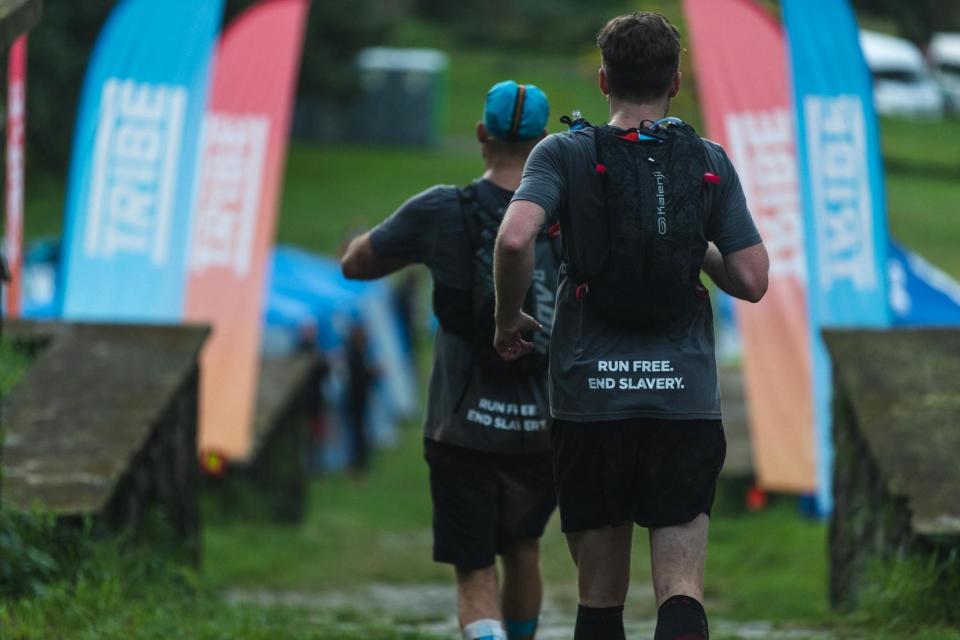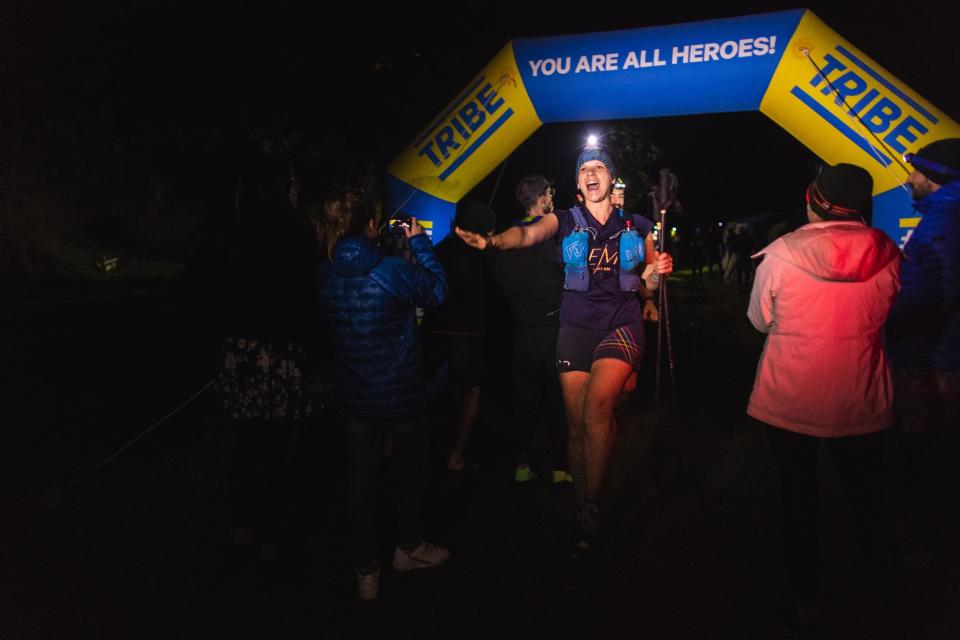Why I took part in TRIBE Run for Love with the TRIBE Freedom Foundation

Modern slavery is a shocking crime which is sadly taking place all around us, hidden in plain sight. Last year, almost 7,000 potential victims of modern slavery were identified in the UK alone, and that number is growing every year. In 2020, I expect the number of victims identified the UK to be close to 10,000.
Even this is just the tip of the iceberg. The true number of victims in the UK is likely to be much, much higher. In 2018, the Global Slavery Index estimated that there could be as many as 136,000 modern slaves just in the UK. Globally, there are 40.3 million people living in modern slavery.
Vulnerable victims are forced into sexual exploitation, forced labour or domestic servitude. Criminals today use violence, intimidation and coercion to control their victims rather than keeping them locked up in chains. Some victims are trafficked from abroad, sold the dream of a better life – but in reality becoming subject to cruel abuse. Others are recruited from the streets of Britain, forced into criminal exploitation. Today, the largest cohort of modern slaves in the UK are British nationals.
Over the last six months, since I took up the role as the Independent Anti-Slavery Commissioner, I have met so many dedicated professionals supporting victims and survivors of modern slavery and human trafficking in the UK. I have also met many volunteers who work in the statutory and charity sector, awesome people who give their time and talents to support others in so many different ways

A few months ago I heard Tom Stancliffe, Co-Founder of TRIBE Freedom Foundation talk about their Run for Love event and how they are raising money to support a wide range of anti-slavery projects. This year, together with their frontline project partners, Ella’s and Snowdrop, TRIBE Freedom Foundation will help establish two new homes for survivors of modern slavery and human trafficking.
Run for Love was established in 2013 when TRIBE Co-Founders Tom Stancliffe, Guy Hacking and Rob Martineau completed the first Run for Love – a 1,000 mile run across Europe, from Odessa (Ukraine) to Dubrovnik (Croatia), to set up the first home for trafficked children in the UK. Four years later they ran from Sarajevo (Bosnia and Herzegovina) to London.
The third edition of Run for Love, a 6-day ultra run challenge in The Azores, was billed as the World’s toughest Island race. Hearing Tom speak about the challenge and their running stories, I was full of admiration but thought that they were all mad! Then somehow Tom persuaded me to join the last leg of the challenge - The Volcanoes Half Marathon. I didn’t think there was any way that I could run that far and unsure how my training in London would prepare me for the climbs in the Azores. I wasn't wrong it was very tough, the toughest challenge I have ever done.
200 runners battled the 253km event over six days, suffering hypothermia, multiple stress fractures, extreme exhaustion and severe dehydration. I arrived with fresh legs on Friday night to camp in the crater of a volcano, ready for the final stage, the Volcanoes Half Marathon. It was no ordinary half marathon route. We navigated through jungle ascents and one vertical ascent that could only be scaled using a rope. My training in the city doing the Fulham 10 km didn’t come close to preparing my legs for this adventure!

I will be visiting Ella’s Home later this month and I visited Snowdrop in Sheffield before I went out to The Azores. Snowdrop is an amazing charity which provides support for victims and survivors in all kinds of practical ways. The mothers and toddler group welcomed me warmly and I was even poured a pretend cup of tea from the plastic tea set. I listened to several survivors tell me how the mix of counselling, practical support and community activities had made all the difference. I heard how Snowdrop had decorated and furnished a client’s flat – a practical service supported by volunteers. I heard about sewing classes, college courses and the Christmas party. The money raised by the runners will go towards buying houses for both charities to enable them to help more survivors.
Victims of modern slavery have suffered unspeakable abuse – their pain is palpable. It’s great to be able to do something to ensure that they have the support and care that they need so that they can begin to rebuild their lives.
But we don’t all have to run marathons or work at safe houses to support victims of slavery. We can do more to prevent this horrific crime from happening in the first place. We are all becoming more aware of the environmental costs to our planet using plastic, or fossil fuels. I would argue that sustainability is not just environmental, it’s also social. Sustainability is not just about the planet by the people who live on the planet.
We are all much closer to modern slavery and human trafficking than we think, in the labour that goes into the goods and the services we buy. As well as looking out for the signs of modern slavery, we should all seek to become more conscious consumers. If your manicure, car wash or new dress is a steal, ask yourself, who is paying the real cost?
Dame Sara Thornton DBE QPM is the UK’s Independent Anti-Slavery Commissioner. She has a UK-wide remit to encourage good practice in the prevention, detection, investigation and prosecution of modern slavery offences and the identification of victims.

 Yahoo News
Yahoo News 